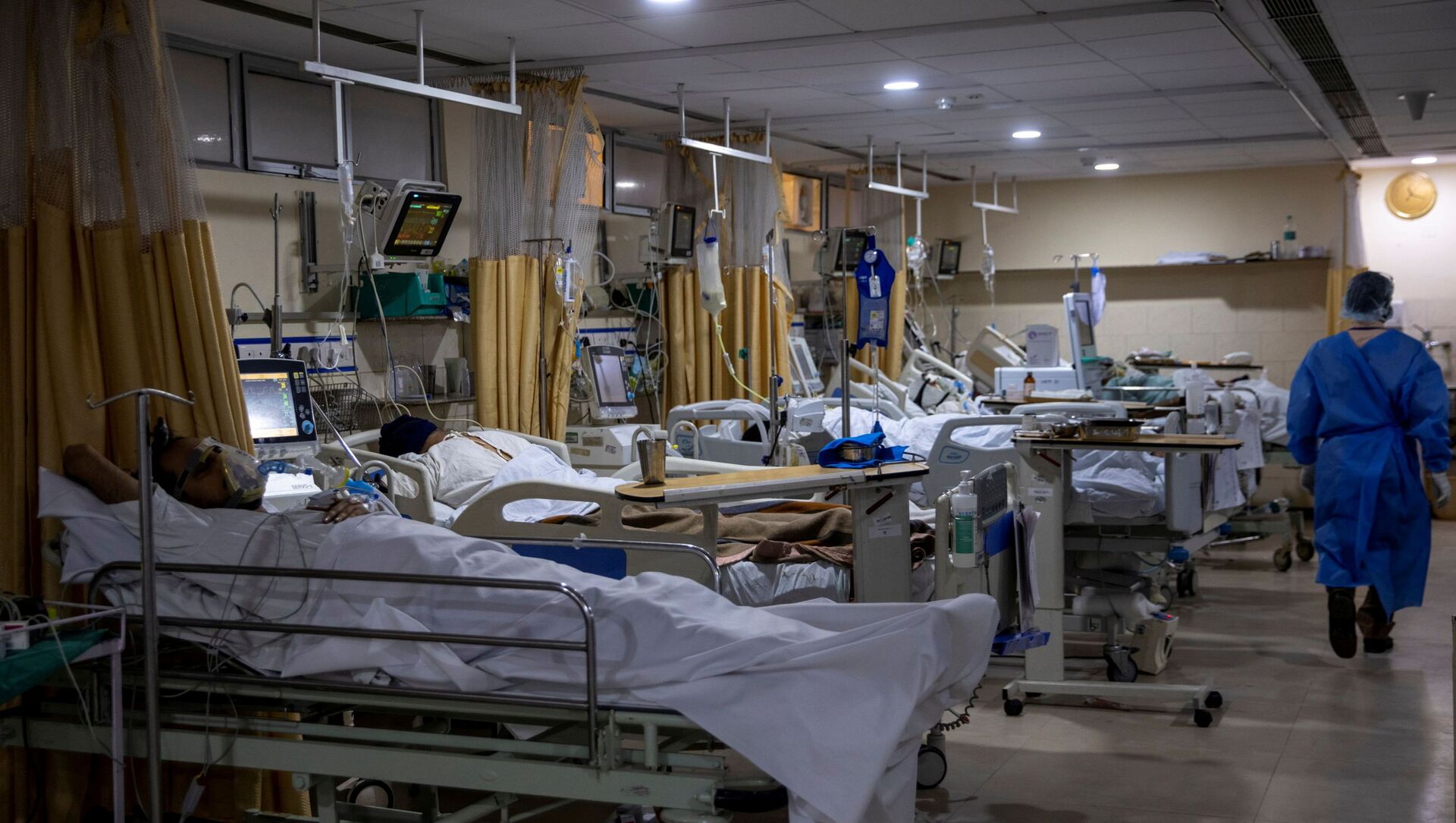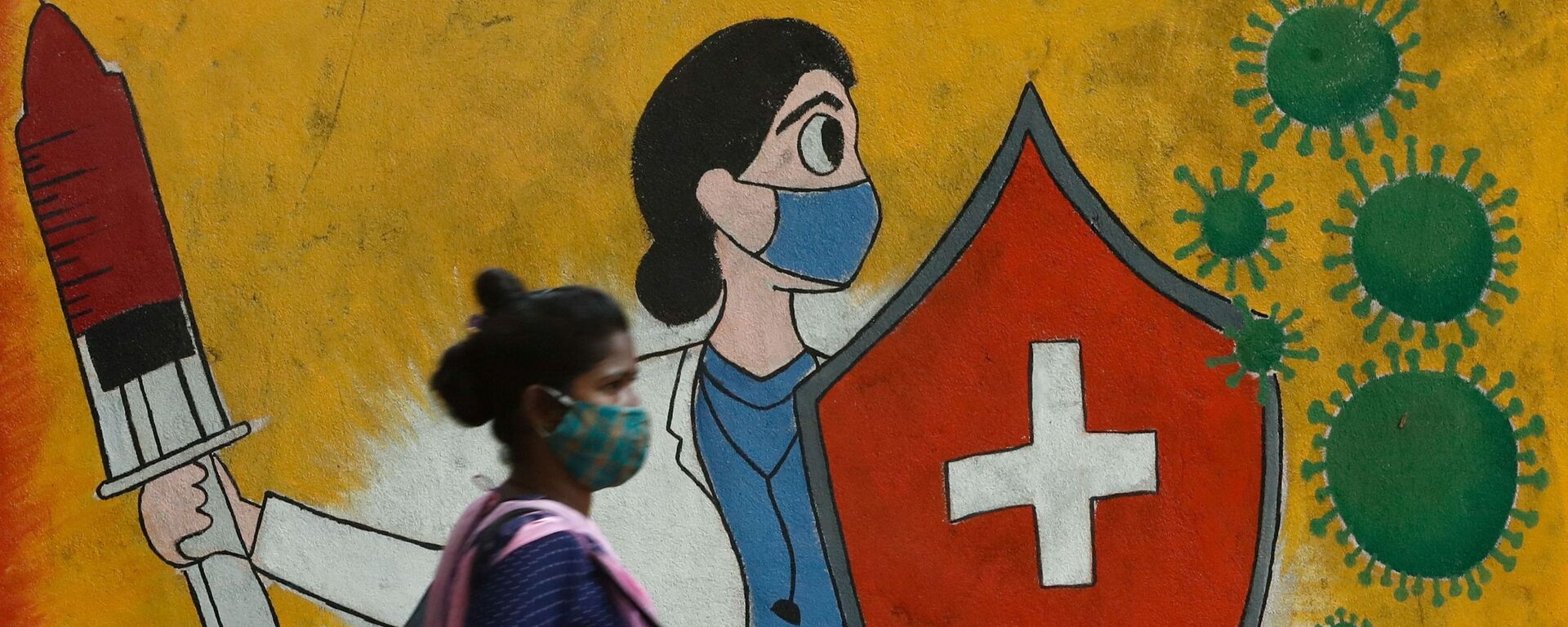The Indian SARS-CoV-2 Consortium on Genomics (INSACOG), announced on Friday that the Delta variant (B.1.617), and its lineage B.1.617.2, have a high transmissibility rate, at 50 percent above the Alpha variant (B.1.1.7). The Delta variant is the primary cause of the second COVID-19 wave in the country.
Last year, the country's Health Ministry established INSACOG, a group of 10 national laboratories. Since then it has been carrying out genomic sequencing and analysis of circulating COVID-19 and correlating epidemiological trends with genomic variants.
Sputnik reached out to Dr. Saher Mehdi, co-founder & chief scientist, wellOwise, and she said that there are three known subtypes of the SARS-CoV-2 variant of B.1.617 that was first reported in India last year. The original variant, known as B.1.617.1 (the ‘original’ B.1.617), is a 'variant of interest (VOI)', the B.1.617.2 recently renamed as the Delta variant, is the 'Variant of Concern (VOC)' and the B.1.617.3 has not yet been designated as a class by the World Health Organisation (WHO).
Covid Variants
"We know that the Delta variant does have increased transmissibility, which means it can spread easier between people," WHO's technical lead on Covid-19, Maria Van Kerkhove, told reporters on Tuesday.
During the first wave, most people were infected by the original B.1.617.1, whereas in the second wave, the Delta variant was the cause of most COVID-19 cases.
Delta - The Variant of Concern
According to an INSACOG study, the rise in prevalence of the Delta variant was accompanied by a rise in the overall rate of infections. The study also mentioned that the rise in COVID-19 deaths was due to the collapse of the Indian healthcare system and not directly because of the variant.
"The Delta variant (B.1.617.2) has two distinct mutations called L452R and 478K, both of which are linked to increased transmissibility, virulence, and decreased effectiveness against known diagnostic and therapeutics. These mutations alter the spike protein, which the SARS-CoV-2 uses to enter the human cells," Mehdi told Sputnik.
Mehdi also said that this variant has a high virulence rate and the presence of T478K mutation in the Delta variant (B.1.617.2) could be the cause of its high transmissibility. The other two subtypes, however, do not have this mutation.
Per media reports, the latest cases of the Delta variant of COVID-19 have now been reported in the UK and in the Australian city of Melbourne.
On the impact of the Delta variant, if a possible third wave of COVID-19 comes, Mehdi said: "There is not enough data from modeling studies to predict the third wave. We may see many more mutations of the variant in future, but whether they will be as virulent as B.1.617.2, no one can predict that."
In April, the COVID-19 outbreak in Delhi was preceded by other outbreaks in Kerala, Maharashtra, and Punjab. While no variant of concern was identified in Kerala in January, the outbreak in Maharashtra has been connected to the B.1.617.1 and in Punjab to the introduction of B.1.1.7.






